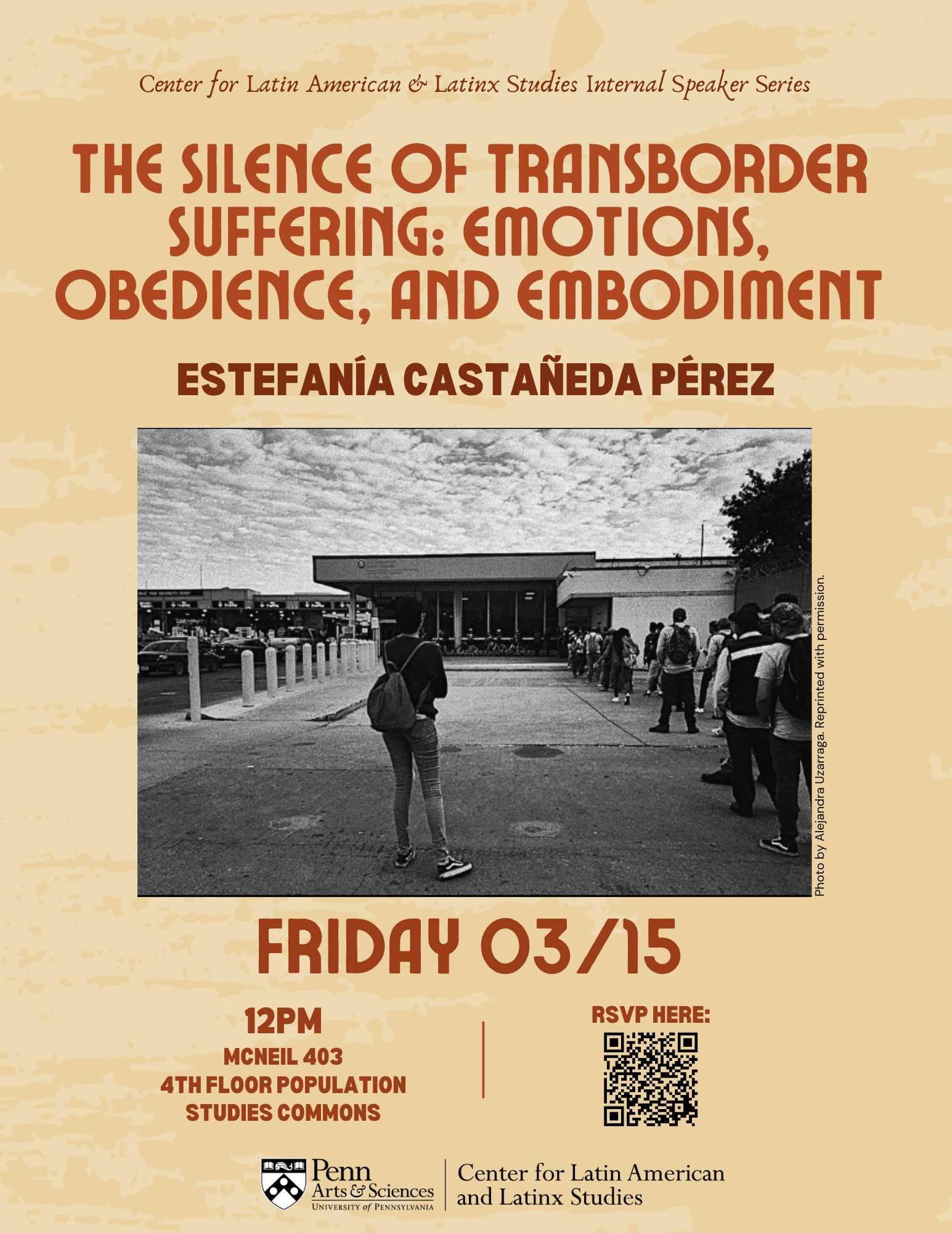CLALSIS
McNeil 403
4th Floor Population Studies Commons

RSVP HERE to attend in person.
RSVP HERE to attend virtually.
Abstract
Research across the social sciences has widely documented the injurious consequences of border and immigration enforcement on the lives of asylum seekers and immigrants. However, the same framing has not been utilized to describe the everyday interactions that occur at land ports of entry, where transborder commuters are routinely subjected to surveillance and excessive policing. How do transborder commuters respond to interactions with U.S. Customs and Border Protection (CBP) officers? What are the emotional dimensions of routine contact with CBP officers? Drawing from original survey data and interviews at three ports of entry at the Mexico-U.S. border in Arizona, California, and Texas, I find that due to the uncertainty and fear surrounding punitive actions from CBP officers, transborder commuters heavily rely on their emotions to convey trust and legitimacy of their mobilities and identities to CBP officers. My research reimagines border and immigration enforcement policies as embodied exercises of state power that racializes and disciplines Latinx bodies.
Bio
Estefania Castañeda Pérez is a postdoctoral fellow at the Penn Migration Initiative at the University of Pennsylvania. She received her Ph.D. and M.A. from the Department of Political Science at the University of California, Los Angeles, and a B.A. in political science and interdisciplinary studies from San Diego State University. Trained as an interdisciplinary scholar, her research focuses on border politics, state power and institutions through the lens of race, ethnicity, and inequality. Her projects examine how routine contact with state institutions affect the racialization, citizenship, incorporation, and well-being of transborder commuters in the Mexico-U.S. borderlands. Estefania has a published academic article in Politics, Groups, and Identities, and has written public-facing immigration policy analyses in the NYU Latinx Project Intervenxions Blog and the North American Congress on Latin America. Her research has been supported by numerous grants and fellowships, including the National Science Foundation, the Ford Foundation, and multiple grants from UCLA and the American Political Science Association. Estefania has held fellowships in the NYU Faculty-First Look Scholars Program, the Immigration Initiative at Harvard, and is currently a fellow at the Penn Migration Initiative. Originally from the Tijuana-San Ysidro borderlands and a first-generation college student, Estefania has advocated for transborder youth by serving as the co-president of the UCLA chapter for the Transfronterizx Alliance Student Organization, and has documented human rights violations at the border in collaboration with multiple immigrant rights organizations.

 Center for Latin American and Latinx Studies
Center for Latin American and Latinx Studies